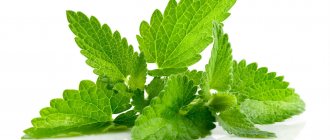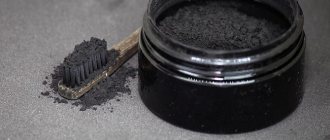Natural Pain Relievers: Benefits
When pain occurs, the first thing that comes to mind for most of us is the desire to take a painkiller. In itself, such a decision is quite logical and natural, but not all people think about the consequences of an uncontrolled addiction to chemical analgesics.
Expert opinion
The main means for relieving pain in modern medicine are SPVP (steroidal anti-inflammatory drugs) and NSAIDs (non-steroidal anti-inflammatory drugs). They are highly effective, but can provoke the development of a number of side effects, including such dangerous conditions as increased blood sugar levels, increased blood pressure, the development of cardiovascular pathologies, and problems with the gastrointestinal tract. Therefore, they should be prescribed exclusively after assessing the patient’s general condition and taken strictly under the supervision of the attending physician.
Vascular surgeon, phlebologist
Osipova Ekaterina Yakovlevna
- Unlike SPVPs and NSAIDs, natural painkillers are characterized by a milder and more delicate effect. In addition, they have other advantages:
- Such drugs can be used for a long period, while synthetic analgesics have a strictly regulated period of administration, which is not recommended to be exceeded.
- Herbal analgesics are characterized by a safe and natural composition. Of course, only if the raw materials for natural painkillers were collected in an environmentally friendly area, far from areas of radiological activity, highways and factories.
- Natural analgesics are much less likely to cause side effects, are not addictive and do not lead to withdrawal symptoms.
- They are usually easily accessible and have a low price, unlike many synthetic medications.
Disadvantages of natural pain relievers
Treat without maiming. Neurologist on how to properly deal with headaches
Instead of drinking handfuls of painkillers and convincing yourself that the pain will go away, think about why exactly you have a headache and whether you are already dependent on pills.
There is hardly a person in your circle who has not had a headache at least once in their life. How to distinguish dangerous pain from non-dangerous? When is it not necessary to take medication? Who is at risk of getting hooked on pills?
Five important questions about AiF headaches were answered by the head of the Pain Clinic of City Clinical Hospital No. 1 named after. N.I. Pirogova, neurologist Ekaterina Abramova.
Is it possible to endure a headache and do without pills?
If a headache interferes with your work responsibilities or household chores, then you don’t need to endure it, you should take a painkiller. However, there are situations when even with a seemingly ordinary headache, it is necessary to consult a doctor, and not try to relieve it with analgesics yourself.
There are four criteria for a dangerous headache, accepted by leading experts around the world. Everyone needs to know them.
1. Did your headache first appear after you were 50 years old? This is most often a sign of a serious illness.
2. Did your head hurt suddenly and very badly? Such pain may be a symptom of intracerebral hemorrhage.
3. Does the headache gradually increase, become stronger, and last for several days or even weeks? This is how the first attack of migraine, the development of a tumor or an infectious process in the brain (meningitis, encephalitis, etc.) may manifest itself. The infection may be accompanied by symptoms of general malaise, in particular high fever and weakness. But sometimes there is only one symptom: headache.
4. Is the headache accompanied by nausea or impaired consciousness (fainting, confusion, the person seems to be inhibited, loses orientation, etc.) or is it significantly worsened by coughing and sneezing? This condition indicates that there is increased intracranial pressure. The cause may be a tumor or problems with the cerebrospinal fluid that washes the brain (impaired circulation, increased or decreased production, etc.).
Any of the listed symptoms indicates that you need to consult a specialist.
What to do if your head hurts often?
Of course, in the case of chronic pain, when the headache is frequent and severe, because of which a person is forced to constantly increase the dose of painkillers, it is also necessary to go to the doctor. Otherwise, there is a high risk of acquiring a drug-dependent headache. Such a headache will not go away on its own; it will require an increasingly larger dose of pills. And they, in turn, can provoke complications from the cardiovascular system, for example, a tendency to thrombosis, or cause an exacerbation of peptic ulcer disease, in severe cases even gastrointestinal bleeding.
Here again there is a clear criterion. If you take more than 15 tablets a month specifically for headaches (this can be calculated from the purchased packages), it means that you have developed a dependence on medications. You should definitely contact a neurologist or cephalgologist: this is also a neurologist who has undergone special training in the treatment of headaches. Young working women with a family often come to our clinic with a similar problem: they cannot afford to endure a headache, but do not have time to take care of their health, start taking painkillers, and even go so far as to take several tablets a day. However, the headache continues to hurt, sleep is disturbed, and overall health worsens. In this case, a detoxification course is carried out for a week, sometimes with the installation of intravenous drips, and special medications are prescribed to relieve headaches. As a result, the dosage of painkillers is gradually reduced, and over time the headache itself stops.
How to choose painkillers?
Everything here is individual. For some people, regular paracetamol or ibuprofen helps with headaches. For others they are useless. There are more modern drugs that do not have such a negative effect on the wall of the gastrointestinal tract and generally cause fewer side effects.
The most reasonable approach is to choose a painkiller together with your doctor, especially if you have, for example, chronic gastritis, if the patient is over 40 years old.
Is it possible to get rid of headaches without medications using home remedies?
Yes, but not always. For example, against migraine (unilateral pain, often in the eye area or behind the eye, pulsating, gradually increases and lasts from 4 to 72 hours), there are no “folk” remedies. An adequate course of drug treatment is necessary.
If the headache is caused by increased blood pressure, then you need to take a blood pressure lowering drug (not a painkiller). If you have a headache, you should first measure your blood pressure before taking pills for pain.
But headaches associated with overexertion can be relieved with non-drug methods. Often the head starts to hurt due to improper posture. For example, a person works at a computer for a long time, sits in the wrong position: his shoulders are raised, his head is moved slightly forward. As a result, the neck muscles become overstrained and produce a characteristic nagging headache, not very strong, but debilitating. In this case, simple exercises to stretch the neck muscles and massage help a lot. You can even just get up from your desk, move around, and the pain will go away.
Often a headache occurs towards the end of the work week. Especially if you have a busy schedule and the person did not get enough sleep, did not eat very well, etc. In this case, you need to first of all get enough sleep (healthy sleep is extremely important for a person with a headache). You can take a hot bath, if there is no high blood pressure, drink green tea, and take a walk in the fresh air. In general, if it is possible not to take pills, it is better not to do so.
What to do if you have a headache after being in the sun for a long time?
When exposed to the sun for a long time, the headache most often occurs due to fluid loss. In the sun, a person sweats much more than usual, especially if he moves or swims in the pool. At the same time, the amount of water you drink often remains the same as on days when there is much less sun. As a result, a headache occurs. In this case, preventive measures are most effective. During a long walk on a sunny day, drink enough water, use hats, umbrellas, and be sure to wear sunglasses. Eye strain, such as squinting into the sun, can also make headaches worse.
If a headache has already appeared after prolonged exposure to the sun, then be sure to drink water, preferably mineral water, to replenish the loss of electrolytes. You can take a cool shower, wash your hair, that is, cool your body. When you can’t take a shower, you can wet a towel with cool water, put it on your head and lie there for a while. If the headache does not go away from such general activities, you can take a painkiller tablet: paracetamol, acetylsalicylic acid, or any non-steroidal anti-inflammatory drug that is in the medicine cabinet. However, if the headache after returning from a sunny beach is very strong, coordination is impaired, and dizziness appears, this indicates severe loss of fluid, an increase or a sharp decrease in blood pressure. In this situation, it is imperative to move the person to the shade, carry out all cooling measures, and give him a painkiller tablet to drink. If symptoms persist, you should definitely consult a doctor so as not to miss a more serious disease.
Source of information: “Arguments and Facts”
Natural pain relievers: disadvantages
Despite the impressive list of advantages, herbal analgesics also have disadvantages that need to be remembered before starting treatment:
- Natural pain relievers are not a panacea. Neglecting to visit a doctor and treat with more effective and fast-acting medications can, in some cases, lead to a worsening of the patient’s condition. This primarily applies to heart attack and stroke, injuries, appendicitis, pneumonia and other serious conditions.
Expert opinion
When it comes to pain caused by serious acute and chronic diseases, taking herbal pain relievers alone may not be enough. Therefore, it is important to correctly assess your condition, if necessary, take something more effective than chamomile decoction, and seek medical help in time.
Vascular surgeon, phlebologist
Osipova Ekaterina Yakovlevna
- When using natural analgesics, there is always a risk of incorrect dosage selection.
- It would be a mistake to assume that herbal remedies are completely safe and never cause side effects. In fact, they also have contraindications that need to be taken into account before taking them.
- Some medicinal herbs can enhance or, conversely, reduce the effect of medications.
The most effective natural pain relievers
When can you try to do without analgesics?
If the pain is mild or moderate, if you have already experienced it, it is not accompanied by other symptoms, it is not at all necessary to immediately take painkillers. Most often, tension headaches and low back pain are relieved without pills. It is enough to simply eliminate the factors that provoke it: relax, distract yourself from negative thoughts, take a comfortable position, etc. For pain in the lower back, it is quite possible to make a corset at home from a sheet (diaper) and folded newspaper for temporary fixation of the lumbar region . In cases where sudden pain is accompanied by nausea, vomiting, numbness or weakness in the limbs, speech impairment, facial asymmetry, you should urgently call an ambulance. Acute, unremitting pain in the abdominal area is also a reason to urgently see a doctor.
Natural Pain Relievers: 6 Alternatives to Ibuprofen
Taking medications such as ibuprofen for headaches or joint pain is a knee-jerk reaction for many people. But health experts say long-term use of ibuprofen increases the risk of a fatal heart attack or stroke. In high doses, it can also put a person at greater risk of heart disease and its complications.
Due to the disconcerting side effects and health risks associated with ibuprofen use, more and more people are turning to natural pain relievers, including medicinal spices and herbal remedies. Natural health practitioners may recommend using different substances for different conditions depending on the nature and severity of the pain.
But in general, there are few proven natural medications that are as effective against painful chronic conditions as ibuprofen. Here are six of them:
Turmeric
Jessica Cording, a registered dietitian and certified health coach, says turmeric is associated with a number of health benefits, including pain relief and disease-fighting abilities. Much of these benefits can be attributed to curcumin, the main ingredient in turmeric.
In addition to being a powerful pain reliever, curcumin also suppresses inflammation. For this reason, natural health experts often recommend curcumin capsules or supplements to patients with osteoarthritis or rheumatoid arthritis who suffer from painful and inflamed joints.
For quick pain relief, drink turmeric tea made from freshly ground turmeric. Some people also like to make golden turmeric milk using ground turmeric and a plant-based milk replacer such as almond or coconut milk.
Ginger
Ginger, a root related to turmeric, has also been used to treat painful ailments in China and India for thousands of years. Ginger contains more than 100 organic compounds, but the most effective for pain relief are gingerols.
Specifically, gingerols suppress inflammation and block molecules that signal pain to the brain. For pain relief, some people find that eating fresh ginger slices provides the fastest relief. Others like to create a tea with turmeric and ginger for a stronger pain reliever.
Cinnamon
In 2022, researchers found that consuming cinnamon may help reduce inflammation and joint pain due to rheumatoid arthritis. Their results, published in the Journal of the American College of Nutrition, showed that the pain-relieving properties of cinnamon can be attributed to cinnamic acid.
Fish fat
Omega-3s in fish oil may suppress the production of molecules associated with inflammation. Fish such as salmon and tuna are rich in these nutrients, so people prone to painful flare-ups due to chronic conditions such as colitis or arthritis may be better off in the long term by consuming these foods as part of a balanced diet.
Thyme
Thyme's powerful phenolic compounds, such as thymol, tannins, and saponins, can provide rapid pain relief. The herb can be consumed fresh to treat sore throat, stomach pain, arthritis and bronchitis.
Recent research also confirms that the herb's essential oil is effective against pain and inflammation. In particular, the oil is often used to treat menstrual cramps and relieve painful periods.
Arnica
This perennial plant is endemic to the mountains of Europe and Siberia. It is a medicinal plant used in homeopathic medicine to treat general bruising and joint pain due to osteoarthritis. Please note that arnica is not intended for ingestion as it is toxic. Instead, natural health practitioners use arnica as a topical remedy.
People prone to chronic inflammation or painful flare-ups due to pre-existing conditions should consider these foods as part of a balanced diet for better long-term pain relief.









